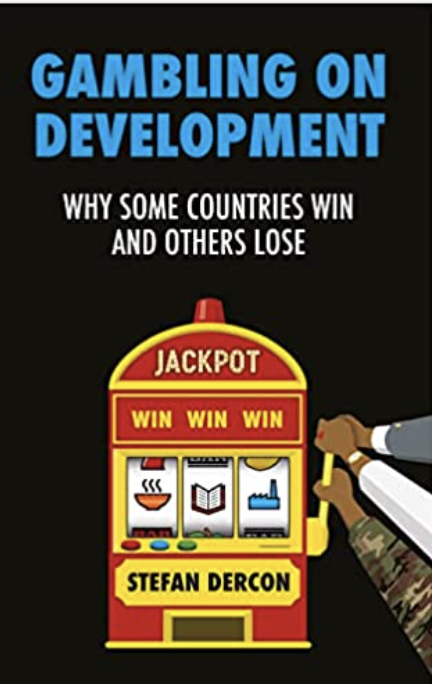
Development : Winners and losers


To eradicate extreme poverty there should be a generation of the explosive growth of the sort mustered by Japan, South Korea, and China, and more recently countries like Vietnam and Bangladesh have reached economic escape velocity,
In the last thirty years, the developing world has undergone tremendous changes as overall poverty has fallen, people live longer and healthier lives, and the economies have been transformed, although many countries have simply missed the boat. Why have some countries prospered while others have just failed? Stefan Dercon, a Belgian-British economist at Oxford University and an International development practitioners argues that the answer lies not in a specific set of policies, but rather in a key development bargain whereby a country’s elites shift from protecting their own positions to gambling on a growth-based future. Despite the imperfections of such bargains, China is among the most striking recent success stories, along with Indonesia and more unlikely places such as Bangladesh, Ghana, and Ethiopia. Gambling on Development is about these winning efforts, in contrast to countries stuck in elite bargains leading nowhere, Building on three decades’ experience across forty-odd countries, Dercon winds his narrative through Ebola in Sierra Leone, scandals in Malawi, beer factories in the DRC, mobile phone licenses in Mozambique and relief programmes behind enemy lines in South Sudan. Weaving together conversations with prime ministers, civil servants, and ordinary people, this is a probing look at how development has been achieved across the world, and how to assist such successes.
Fast growth, reasonably equitably shared, remains a prerequisite for a better life. “The defining feature of a development bargain is a commitment by those with the power to shape politics, the economy, and society, to striving for growth and development,” writes Dercon. Growth happens, in other words, when elites try to bring it about. To do so they must gamble on increasing the size of the economic pie rather than carving up one that already exists. Their gamble may fail and they may be blamed, or it may succeed and they may be pushed from power by new entrants.
The idea of an “elite bargain” may seem blindingly obvious. Dercon’s insight came after meetings in 2013, when he was chief economist of the UK’s now-defunct Department for International Development, first with officials from the Democratic Republic of Congo and then with those from Ethiopia. He came away thinking that, for all their fine words, DRC officials were not serious about development, whereas those from Ethiopia, Though they spoke in more unorthodox terms, meant what they said.
State planning may work, particularly if, like China, the state has a history of competence. You don’t need to be an ideal democracy with a perfect set of economic policies to gamble and roll the development dice.
Dercon’s view has implications for international aid, which, he argues, is never a determining factor, although it can help countries, but only if they have gambled on development themselves, if not then aid is at best a sticking plaster and at worst an enabler of a derelict elite.
Dercon’s message is “ Magic and miracles happen, But those in charge have got to want it”.
Gambling on Development: Why Some Countries Win and Others Lose by Stefan Dercon, Hurst £25, 360 pages.
